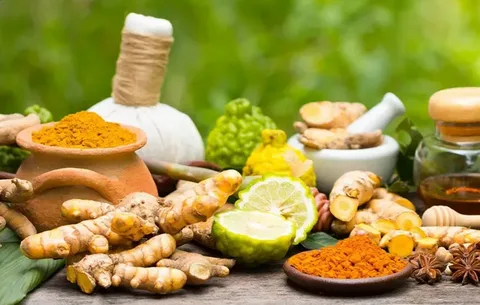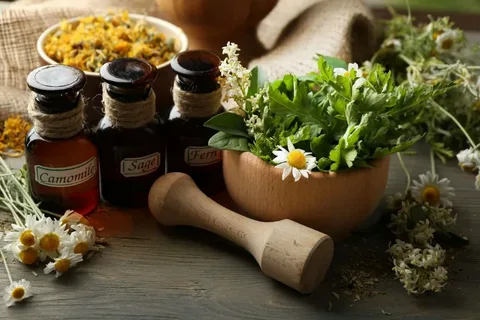Melbourne has become a hub for those seeking alternative and holistic approaches to health, with herbal medicine being a prominent choice among residents. Herbal medicine Melbourne provides a pathway to health that intertwines nature’s bounty with traditional practices, offering individuals a comprehensive approach to wellness.
Introduction to Herbal Medicine and Its Historical Significance
Herbal medicine is an ancient practice utilised for centuries across diverse cultures globally. Rooted in traditions such as traditional Chinese medicine, Ayurveda from India, and indigenous practices, it underscores a longstanding belief in the healing powers of plants.
This practice harnesses natural plant-based remedies to treat various ailments and promote overall health, offering a natural alternative or complement to conventional medical treatments. The historical significance of herbal medicine is evident in its enduring presence and continued relevance, reflecting a deep connection between human health and nature’s pharmacy.
These time-honoured practices have been meticulously documented and passed down through generations, ensuring the preservation and evolution of herbal knowledge.
Science Behind Herbal Medicine: How It Works
The effectiveness of herbal medicine lies in the complex biochemical compounds found within plants. These compounds, such as alkaloids, flavonoids, and terpenoids, can interact with the human body to produce therapeutic effects. Through meticulous research, science has begun to understand how these compounds support bodily functions, reduce inflammation, and enhance immune response.
The active ingredients in these plants can mimic or influence the body’s biological processes, helping restore balance and promote healing. The interaction between these natural compounds and human physiology is a testament to the sophisticated nature of herbal medicine. Each herb may contain multiple active ingredients that work synergistically, making the therapeutic effects comprehensive and multifaceted.
In Melbourne, practitioners leverage this intricate knowledge to provide treatments tailored to individual needs, ensuring that each remedy is safe and effective. This harmonious blend of traditional wisdom and scientific understanding underscores herbal medicine’s growing acceptance and popularity in modern healthcare settings.
Common Herbs Used in Melbourne’s Herbal Medicine Practices
In Melbourne, practitioners utilise various herbs to address multiple health concerns. Echinacea, renowned for its immune-boosting properties, is frequently recommended during the cold and flu season. St John’s Wort is often suggested for its mood-stabilising effects, providing essential support for mental health.
Chamomile is celebrated for its calming properties and is commonly used to alleviate anxiety and promote restful sleep. Ginger is another staple, valued for its digestive benefits and ability to reduce nausea.
Additionally, turmeric is famous for its potent anti-inflammatory and antioxidant properties, often used to support joint health and overall wellness. These herbs, among others, are integral to herbal medicine practices in Melbourne, showcasing nature’s ability to offer practical and natural health solutions.
 Benefits of Choosing Herbal Medicine for Health and Wellness
Benefits of Choosing Herbal Medicine for Health and Wellness
Choosing herbal medicine for health and wellness offers several compelling benefits, each contributing to a holistic approach to healing.
Natural Ingredients
Herbal remedies utilise plant-based ingredients, minimising the intake of synthetic substances. This natural composition often reduces the risk of side effects of conventional medications.
Personalised Treatment
Herbalists tailor treatments to the individual’s unique health profile, ensuring that each remedy addresses specific needs. This personalised approach enhances the effectiveness of herbal medicine.
Holistic Healing
Herbal medicine considers the whole person, including physical, emotional, and mental well-being. This comprehensive approach fosters overall wellness rather than merely targeting symptoms.
Preventative Care
Many herbs used in herbal medicine have preventative properties. They help strengthen the immune system and reduce the risk of illness. Regular use can support long-term health maintenance.
Cost-Effective
Herbal remedies can be more affordable compared to pharmaceutical treatments. Additionally, the preventative nature of herbal medicine can result in fewer medical expenses over time.
Sustainability
Herbal medicine often supports environmentally friendly practices, including sustainable sourcing and reducing reliance on industrial pharmaceutical production. This eco-conscious approach benefits both individual health and the planet.
Herbalist Melbourne: Qualifications And Practices
Herbalist Melbourne are highly trained professionals, often possessing formal qualifications in herbal medicine or naturopathy. Their education includes extensive coursework in the properties and therapeutic uses of herbs and training in anatomy, physiology, and biochemistry. Many herbalists in Melbourne are members of professional associations, such as the National Herbalists Association of Australia (NHAA), which ensures adherence to stringent standards of practice and ethics.
During consultations, herbalists take a comprehensive approach by examining a patient’s medical history, lifestyle, and specific health concerns. They develop personalised treatment plans that may include herbal remedies, dietary suggestions, and lifestyle modifications to address the root cause of health issues.
These practitioners stay current with ongoing education and often collaborate with other healthcare providers to ensure a well-rounded approach to patient care. By blending traditional knowledge with modern scientific understanding, Melbourne’s herbalists offer tailored solutions that promote holistic wellness.
How to Find a Reputable Herbalist in Melbourne?
Finding a reputable herbalist in Melbourne involves a few key steps to ensure quality care. Firstly, the herbalist’s qualifications and memberships in professional associations such as the National Herbalists Association of Australia (NHAA) must be verified. These credentials indicate a commitment to high standards and ongoing education. Personal recommendations from friends or family can also be valuable, as they offer firsthand insight into the herbalist’s practice.
Additionally, reading online reviews and testimonials can provide further information about patient experiences and satisfaction levels. It’s essential to look for clear communication from the herbalist and a willingness to collaborate with conventional healthcare providers, which indicates a holistic and integrative approach to treatment.
Researching the herbalist’s specialisations and areas of expertise can help find a practitioner who aligns with specific health needs. Many reputable herbalists offer initial consultations, which can be an excellent opportunity to assess their approach and determine if it suits individual preferences. Taking these steps ensures a thoughtful and informed choice when selecting a herbalist in Melbourne.
Integrating Herbal Medicine with Conventional Healthcare
Integrating herbal medicine with conventional treatments can improve health outcomes by addressing the underlying causes of conditions. This holistic approach ensures a comprehensive treatment plan.
Complementary Therapies
Herbal medicine can complement conventional treatments, providing additional support for managing symptoms and side effects. For instance, ginger can help alleviate nausea during chemotherapy.
Personalised Care Plans
Collaboration between herbalists and conventional healthcare providers enables the creation of tailored care plans that consider the patient’s entire health profile, ensuring a balanced and effective treatment strategy.
Informed Decision-Making
Combining both practices allows patients to make informed decisions about their health, understanding the benefits and limitations of each approach. This collaborative effort fosters greater patient autonomy and satisfaction.
Monitoring and Safety
Integrating herbal and conventional medicine requires careful monitoring to avoid potential interactions and ensure safety. Qualified herbalists work closely with doctors to track progress and adjust treatments as needed.
Holistic Wellness
This integration promotes a holistic view of health, recognising the importance of mental, emotional, and physical well-being. By addressing all aspects of health, patients receive a more thorough and supportive care experience.
Herbal Consultations: What to Expect During an Appointment
Clients can expect a thorough health history and lifestyle assessment during a herbal consultation. The herbalist will investigate current health concerns, diet, and stress levels to comprehensively understand the individual’s welindividual’s. Detailed discussions will cover symptoms, medical history, and any medications or supplements being taken.
The herbalist may also perform physical examinations and ask about emotional and mental health to develop a holistic view of the client’s condition. A personalised treatment plan will be crafted, often including specific herbal remedies, dietary suggestions, and lifestyle modifications tailored to address the root causes of health issues.
Follow-up appointments are typically scheduled to monitor progress and make necessary adjustments to the treatment plan. This iterative process ensures the treatment remains effective and responsive to the client’s evolving needs. By maintaining clear communication and a collaborative approach, herbal consultations empower individuals on their journey to optimal health and wellness.
Ethical Considerations and Sustainability in Herbal Medicine
Ethical considerations in herbal medicine are crucial to ensuring the sustainability of plant resources and the integrity of the practice.
- Responsible sourcing is essential, focusing on preventing overharvesting and protecting endangered species.
- Fair trade practices are also necessary, supporting local communities and farmers cultivating medicinal plants.
- Ethical herbalists in Melbourne are committed to environmental stewardship, often sourcing herbs from organic and sustainable farms.
- They also advocate for biodiversity, encouraging the cultivation of various plants to maintain ecological balance.
- Additionally, ethical practices include transparency in ingredient sourcing and formulation, ensuring consumers are informed about the origins and processing of their herbal remedies.
- By prioritising these moral standards, the herbal medicine community in Melbourne contributes to a sustainable and responsible approach to natural health care.
Workshops and Educational Resources for Herbal Medicine Enthusiasts
Melbourne provides an array of workshops and educational resources tailored for those keen on exploring the realm of herbal medicine. These workshops cover diverse topics, such as identifying and harvesting local herbs, preparing herbal remedies, and studying the medicinal properties of various plants. Esteemed herbalists, community centres, and educational institutions frequently host these sessions, offering theoretical knowledge and hands-on experiences.
Additionally, local libraries often hold seminars and provide access to a wealth of literature on herbal medicine, enabling enthusiasts to deepen their understanding and skills. Some courses also include field trips to botanical gardens and natural reserves, allowing participants to observe herbs in their natural habitats and learn sustainable foraging practices.
Online platforms are also increasingly popular, offering webinars and virtual classes for those unable to attend in person. These educational opportunities foster a deeper appreciation for plants’ therapeutic potential and build a community of informed individuals dedicated to holistic health. Melbourne’s commitment to herbal education ensures that both novices and seasoned enthusiasts can find valuable resources to further their journey in herbal medicine.
Conclusion
Herbal medicine has become preferred for those seeking natural and holistic health solutions in Melbourne. This practice, deeply rooted in historical traditions, aligns with modern scientific research to offer comprehensive care. The benefits of herbalist Melbourne include using natural ingredients, personalised treatment plans, and emphasising holistic healing. In Melbourne, herbalists are highly qualified, often holding certifications from reputable institutions and adhering to stringent ethical standards. They offer thorough consultations to understand the patient’s unique health profile and develop tailored treatments. Integrating herbal medicine with conventional healthcare enhances patient outcomes by providing a balanced approach that addresses symptoms and underlying causes.
FAQs
What Is The Role Of A herbalist Melbourne?
A herbalist Melbourne conducts thorough health assessments, recommends plant-based remedies, and creates personalised treatment plans to address individual health needs holistically.
Can Herbal Medicine Be Used Alongside Conventional Treatments?
Indeed, herbal medicine can complement conventional treatments. It often helps manage symptoms and side effects, enhancing overall treatment efficacy holistically.
How Can One Ensure The Quality And Safety Of Herbal Remedies?
To ensure the quality and safety of herbal remedies, it is advisable to source herbs from reputable suppliers and consult qualified herbalists who comply with professional standards and ethical guidelines.
| Other Good Articles to Read |
| Skank Blogs |
| Unreal Blogs |
| Tba Blogs |
| All City Forums |
| Dany Blogs |
| Refuge Blogs |
| The Music Blogs |
| Key Forums |
| The Big Blog Theory |
| Joe Blogs |
| Blogs 4 Me |
| Blogs Emon |
| Related Business Listings |
| Contact Directory |


